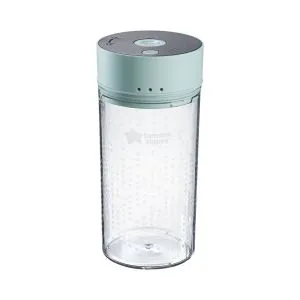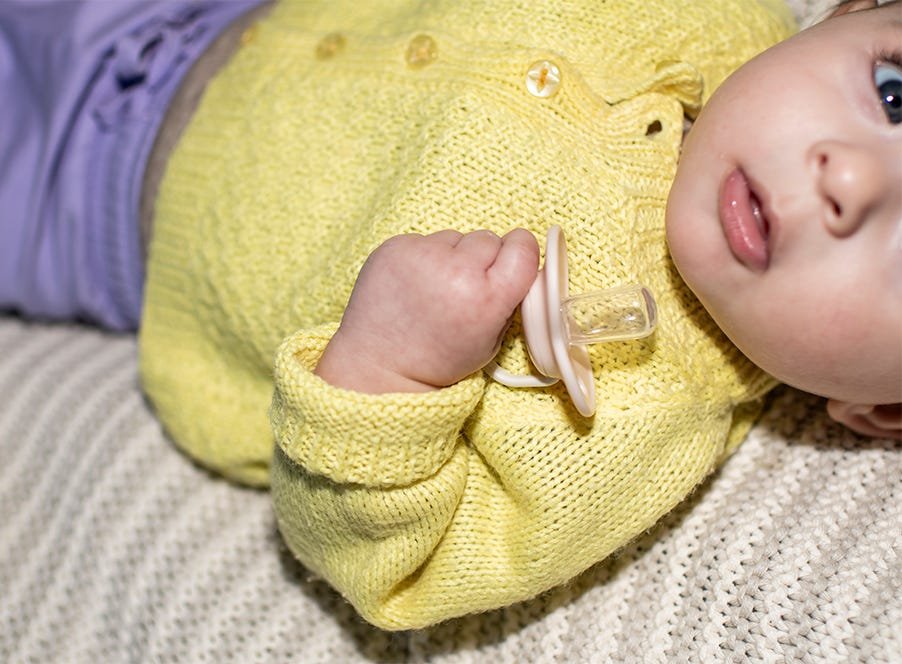Although it's common and usually harmless, nasal congestion in babies is uncomfortable and therefore stressful for their parents. Don't worry too much though, there're plenty of things you can do to help relieve your baby's nasal congestion at home when they're feeling a little under the weather.
We're here to help you understand what causes nasal congestion in babies, how you can help clear it, and when you should seek help from a doctor.
What causes congestion in babies?
Nasal congestion is caused by swelling and the presence of excess mucus in a baby's nose.
If your little one has a blocked nose, they may have picked up a common cold or a respiratory infection like the flu.
Sometimes it's caused by an allergy which needs specific medical treatment, but mostly, nasal congestion happens because of mucus build-up in a baby's tiny nose. This can cause them discomfort as they haven't learned how to clear their nasal passages yet.
What are the symptoms of nasal congestion in babies?
If a baby is experiencing a blocked, stuffy nose, you may notice some other symptoms such as...
- noisy or more noticeable breathing
- fussiness or irritability
- coughing
- a runny nose
- sniffling.
How long does nasal congestion in babies last?
Commonly, nasal congestion in babies and toddlers will clear up on its own in five to seven days, but it can sometimes last for up to two or three weeks.
If it's caused by an allergy, their nasal congestion can last for months at a time. In this case, it's best to speak to your doctor as soon as possible.
How to get rid of a baby's congestion
First things first, you may find that your baby's congestion seems worse at night when they're lying on their back, but don't be tempted to put them down to sleep propped up or on their side. You should always put your baby to sleep on their back, even when they've got a blocked nose.
Before they go to sleep and during the day, there are a few different ways to relieve your baby's congestion at home. These include...
- Keeping them hydrated: Make sure that your little one continues to feed well, as fluids can help ease congestion. If you're breastfeeding, your breast milk adapts to protect them from germs that cause congestion.
- Using saline drops: These baby-safe drops contain salt water and can help to loosen dried snots and thin mucus to relieve a stuffy nose. They can be bought from your local pharmacy. Just be sure to follow the instructions carefully as overuse can cause the skin around the nose to become irritated.
- Cleaning their nose: Using an electric nasal aspirator or silicone bulb can help gently clear your baby's nose. These handy tools suck out the mucus to help them breathe easier. Ensure that your aspirator or bulb is cleaned thoroughly after every use. If your baby has a runny nose, it's a good idea to regularly and gently wipe their nose to keep their delicate skin dry and avoid any unnecessary irritation.
- Humidifying the air: Setting up a humidifier in your baby's sleeping space can help to boost the humidity in the air and therefore moisten their nasal passages and loosen any dry congestion.
When to call a doctor for congestion in babies
As with all aspects of bringing up a baby, it's best to trust your parental instinct when it comes to nasal congestion. If your baby is happy and feeding normally, there's usually no need to seek medical help. Just try and keep their nose as clear as possible at home.
But, if the congestion is severe or lasts for a long time or you're worried about your little one's ability to breathe, don't hesitate to speak to your doctor. They will be able to provide an expert diagnosis and prescribe medication if it's needed.









